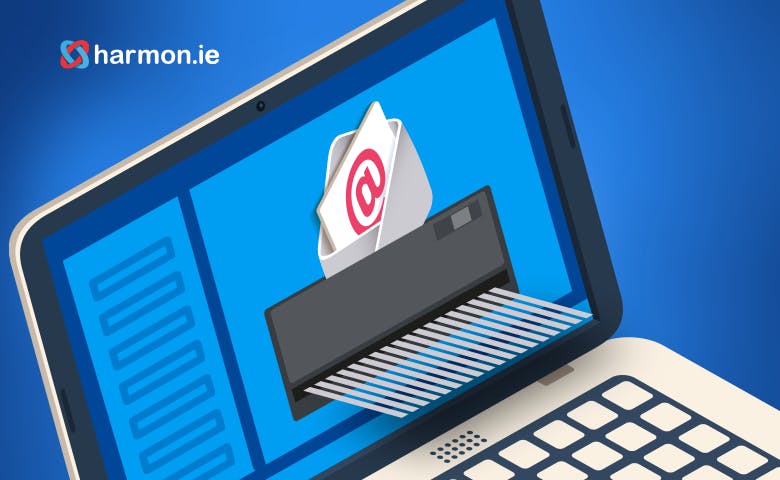The digital age has significantly altered the way people interact with one another – with businesses of all shapes and sizes relying on a myriad of communication methods.
For many (if not most) businesses, email remains an essential part of daily workflow and correspondence. In fact, email has been central to professional communication for decades. Regardless of industry, email is pivotal to sharing essential information both internally and externally.
Despite such widespread use, however, many businesses are still largely unaware of the importance of properly managing their email systems. This applies primarily to the act of archiving emails and suitably retaining the data therein. It also applies to the process of deleting emails that are redundant, old or trivial.
To operate at an optimum level, your business needs to be effectively managing email processes at all levels of operation – and following an official retention policy.
Why is email management important?
Information workers are swimming in email; many receiving over 100 messages per day. Now, consider what that number looks like in an office of 100, 1000, or 5000 employees.
Keeping track of emails on this scale—alongside the important information held within them—is a near impossible task. While sending and receiving emails is certainly a cost-effective and efficient method of conducting business, this abundance of digital mail comes with its own unique legal, storage and sourcing problems for employees and business owners alike.
Proper email management is the solution to these problems.
Compliance
In any business setting, it is useful to track the correspondence held within emails. This is particularly important when information within an email pertains to business processes or is sensitive in subject matter.
Compliance regulations can take up a lot of time for your IT department. In different industries, countries and departments have varied regulations when it comes to retaining information, all businesses will open themselves up to the risk of litigation or penalties if they fail to follow standard policy.
What’s more, if your business is involved in litigation, it’s important that data is preserved so that it can be submitted upon request. In following specific processes for storing important emails, you can save your business stress and time in producing records as and when necessary.
Time management
Email management also saves time in day to day processes. In effectively organizing emails, employees will be able to find what they are looking for with ease. Save precious time digging through messy inboxes and keep data within easy reach.
Data recovery
In the event that data is lost within mail servers, effective email management will ensure that backups are always available. This removes the risk of important information being lost forever – which means you can avoid disasters that could potentially jeopardize the very foundation of your business.
But, are you deleting your emails?
Whilst it’s certainly important to effectively store emails in a safe space, it’s also vital that emails are deleted when necessary. Not only does this clear up space for storage, it also makes it much easier to search for relevant documents in a timely manner.
Let’s unpack these ideas a little further.
The issue of storage
Regardless of whether your emails are stored on-site or in the cloud – storage has a cost. All businesses will look for ways to keep costs down, which is why holding onto email data that is no longer needed is an ineffective use of IT assets.
Search speed
Though email servers are becoming increasingly robust, it’s always going to be quicker and easier to perform a search through a smaller dataset. This applies to both human search and computer search speed – it is faster to find information when looking at a shorter list.
Valuable content should be stored elsewhere
If a particular email contains key information about a project or client, is your email inbox the best place to store it? Having important information saved to a regulated and organized space is both more reliable and practical. That’s why harmon.ie captures and classifies business emails; making it easy to drag and drop files straight from your inbox into SharePoint.
Security
Following on from the last point, it is also unwise to store sensitive information for any longer than your business needs it. Having sensitive emails to hand can open your business to potential risks, such as compliance breaches or data leaks. Either of these instances could have a harmful impact on the reputation of your organization and lead to expensive legal issues.
Keep or delete?
There is certainly something to be said for deleting as much as possible when it comes to your business emails. Though it’s vital to make the distinction between data that needs to be archived and data that can be discarded, it’s never a good idea to clog up your inboxes with redundant emails that simply serve to slow down your searches and open up your business to data breach risks.
At harmon.ie you can easily surface your inbox content by business topics like products, services or projects. You can discover related emails, classify content with ease and find documents in seconds, in short, our goal is to ensure the success of your email management initiative.

